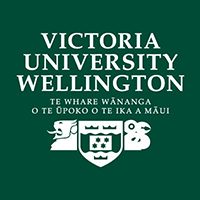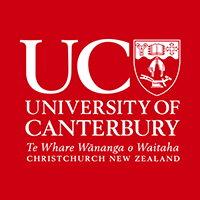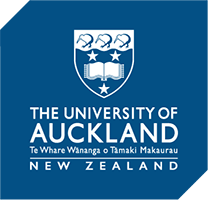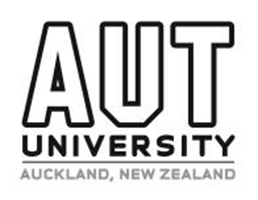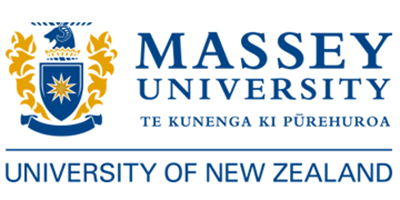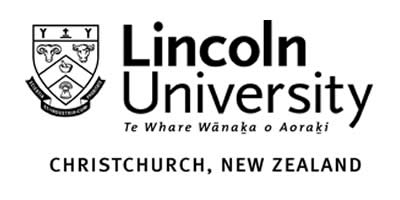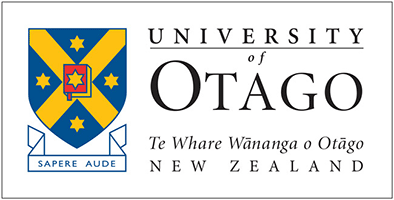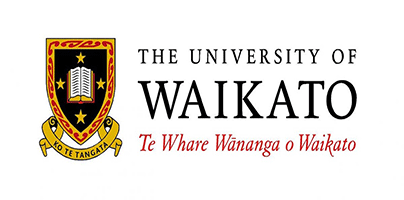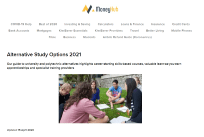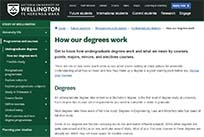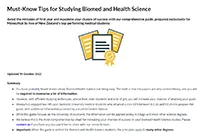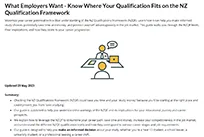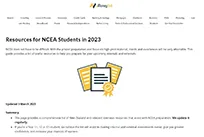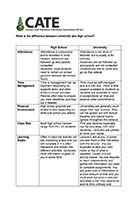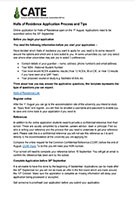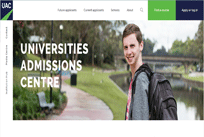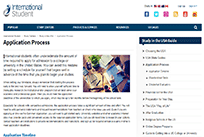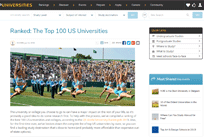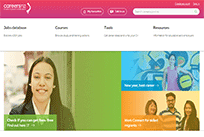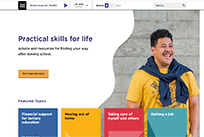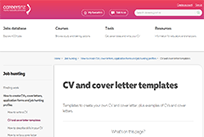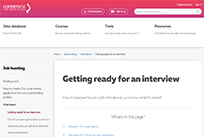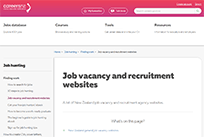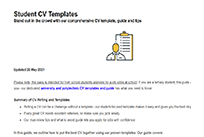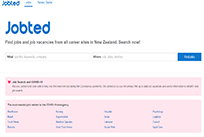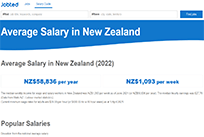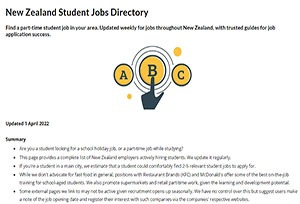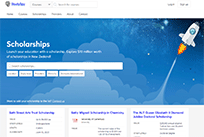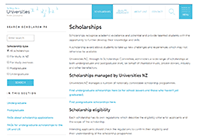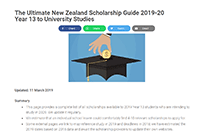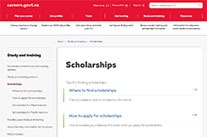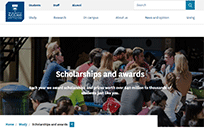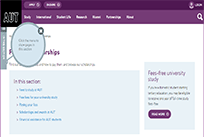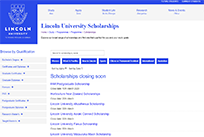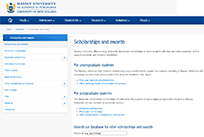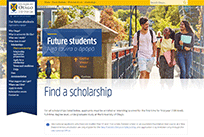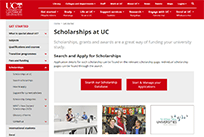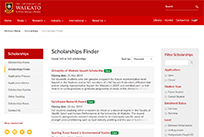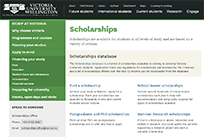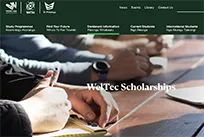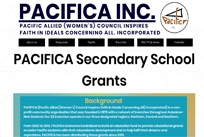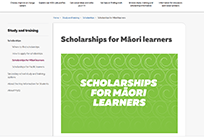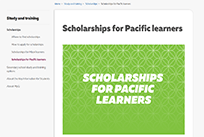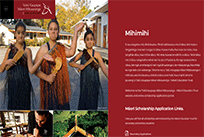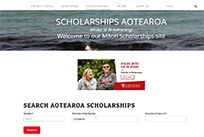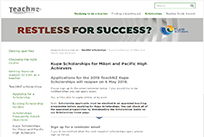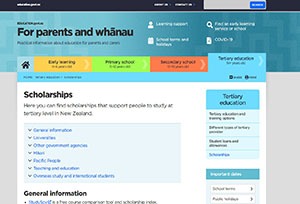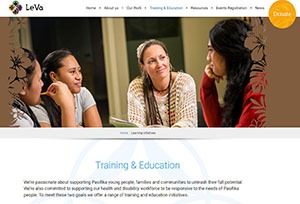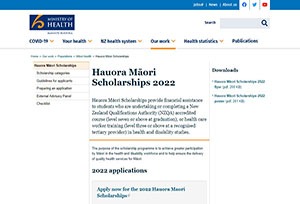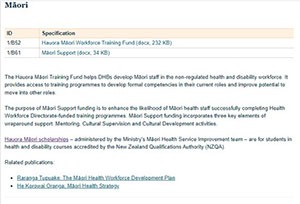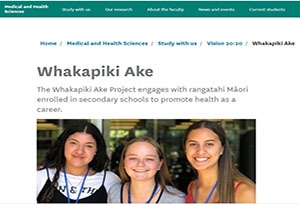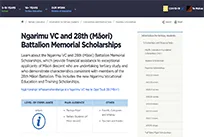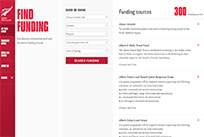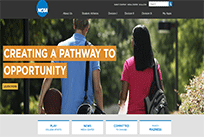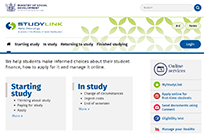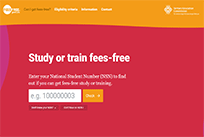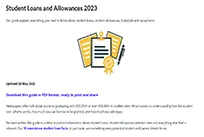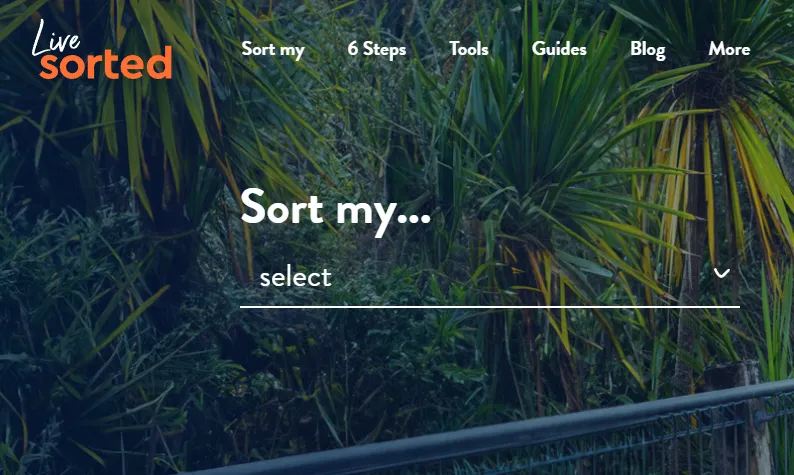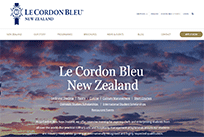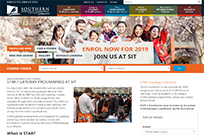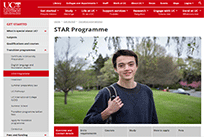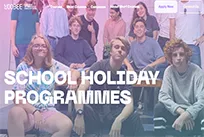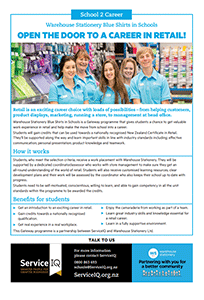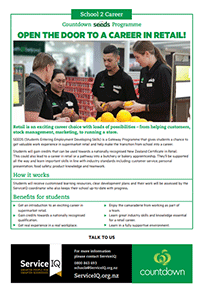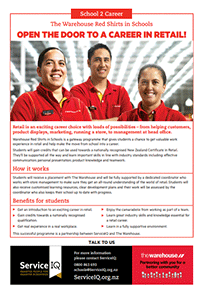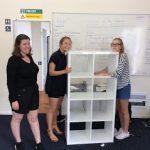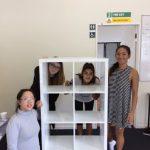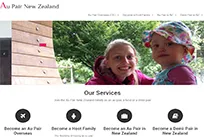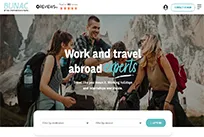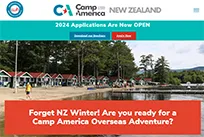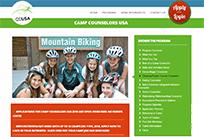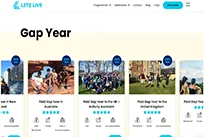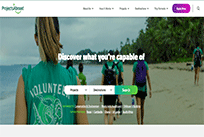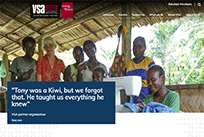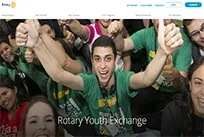Careers & Transition
Te Whare Rapuara
Our Vision
The Careers and Transition Department provides students with careers and course advice services and access to facilities and resources to maximise their career decisions and further study options. The overall focus of career education at Wellington Girls’ College is to assist all students to make informed decisions about their future education, training and work pathways, within and outside college.
The Careers and Transition whare is easily accessed in T20.
Our Team
Tō mātou kapa
Ms K Johnson
Tertiary Liaison
Course Advice
Subject Choices
Careers Advice
Hall of Residence Applications
Scholarship Assistance
Studylink Information
Ms R McGuinness
Gateway Teacher
Course Advice, Subject Choices
Careers Advice
Gap Year & Student Exchange
Spirit of New Zealand Co-ordinator
Trades Academy Assistance
.
Ms W Caseley
STAR Co-ordinator
Gateway Co-ordinator
Course Advice
Subject Choices
Careers Advice
Job Vacancies
Job Application Assistance
Ms S Sulaiman
Scholarship References
Tertiary Application References
reference@wgc.school.nz
.
Ms J McCallister
Ms J McCallister
Common Confidential References for Halls of Residence
Testimonials
.
Careers Events
Ngā kaupapa mahi e haere ake nei
-
Oct 30
-
Nov 06
-
Nov 08
-
Nov 12
Undergraduate Degree Entrance Requirements.
Ngā whakaritenga mō te urunga ki ngā tohu paetahi
Tertiary Information
Ngā pārongo mō te whare wānanga
THE ACADEMIC STAIRCASE
Certificates:
Certificates are the first stage in academic study and are offered at some Universities and Poytechnics as well as many private providers. Certificates are usually one year long and typically can be entered with level 1 literacy and numeracy or for some courses completion of Yr 12 is required. Certificates can also be used to staircase into some Diploma programmes or Bachelor degrees providing you pass with excellent results.
Diplomas:
Diplomas are between one and two years long and can provide students with a qualification or they can be used to staircase into Bachelor degrees. Diplomas usually require a minimum of 48 level 2 credits with literacy and numeracy.
Bachelor Degree – Undergraduate:
Bachelors can range from 3 to 5 years plus. Entry to Bachelor degrees is University Entrance but many institutes have higher entry and subject specifications. See UE power point and tertiary websites for details.
Postgraduate Diplomas:
This requires a previous degree majoring in a subject or a related area of study that the postgraduate diploma is in. Some are highly specialized professional qualifications eg the postgraduate diploma in clinical psychology. Some postgraduate diplomas form the first year of a masters degree.
Graduate Diplomas:
Most graduate diplomas can be taken by students with an undergraduate degree major in an unrelated area. They provide an opportunity to change subject areas within your first degree area or in a completely different area. Graduate diplomas can be taken as a way of meeting the prerequisites for further study in a new area, or as a way of completing a “mini-degree” in a different area, enhancing your employment prospects. Some graduate diplomas, eg, the graduate diploma in journalism or social work are professional qualifications which prepare you in a specific field.
Honours Degree:
Postgraduate honours degrees entail one year of full time coursework after completing an undergraduate degree. Most honours programmes comprise a selection from 400 level courses in one subject, though most programmes give you the option of including 1 – 2 courses from another subject.
Usually students study an honours degree in the same subject they majored in for their undergraduate degree. You usually need good 300 level grades to be eligible, but prerequisites can vary between subjects.
Masters Degree:
A masters degree comprises a minimum of one or two years study and can involve either coursework or research or a combination of both. Your research is presented in the form of a thesis, dissertation or a research project. Part time study may be possible but is not automatic. Masters degrees can be awarded with either honours or distinction. Students who are making good progress can apply to transfer to a doctorate.
Doctorate:
A doctorate involves extensive, sustained and original research and study in a subject of your choice, with the results being presented in a thesis.
Your work will contribute to intellectual knowledge in your field. It is normally the highest academic qualification available and is a mark of intellectual ability, self discipline and commitment. A doctorate prepares you for an academic career in your chosen subject.
Candidates must have at least a masters or honours degree with first or second class honours or have been admitted to the university equivalent status. The minimum period of full time enrolment is two years and the maximum is normally four years.
There are many Private Training Establishments in Wellington and throughout New Zealand. See Careers for advice and information.
Careers & Job Seeking Assistance
Ngā momo mahi me te āwhina ki te rapu mahi
Careers – How Can I Help Myself?
There are a number of places where you can get information about Careers.
Number one is always checking out ideas with a Careers Adviser.
You can also look for information yourself.
Making the right decisions about jobs, training and careers can be difficult. Career Services can help you and your family make sense of the huge amount of information available to you. Career Services is the government agency that provides free and independent information and advice about jobs, courses, training and careers. The Career Services website has information on over 5000 study and training options, with information on funding and scholarships. There are 670 job profiles, interviews with people doing the job, salary ranges, skills and qualifications needed and workplace demand.
Wellington JP Services
https://justiceofthepeace.org.nz/Page/Search?Location=Wellington&Surname=
Women in Trades
https://www.tradecareers.co/links
Train or Retrain
https://www.connected.govt.nz/education-and-training/
Apprenticeships in New Zealand – The Definitive Guide
https://www.moneyhub.co.nz/apprenticeships.html
Oompher
https://www.careers.govt.nz/about-careers-nz/oompher/
Just the Job Career Videos
http://www.justthejob.co.nz/
Personality Test (Based on the Myers Briggs Model)
https://www.16personalities.com/
Moneyhub – What to Study
https://www.moneyhub.co.nz/what-to-study.html
Top Tips for Choosing NCEA Subjects
https://www.moneyhub.co.nz/top-tips-for-choosing-ncea-subjects.html
NCEA Subject Choice
https://www.careers.govt.nz/ncea-subject-choice/
Resources for NCEA Students
https://www.moneyhub.co.nz/resources-for-ncea-students.html
Five Free Must-Haves for High School Students
https://www.moneyhub.co.nz/school-student-freebies.html
Year 13 Leavers’ Checklist
https://www.moneyhub.co.nz/year-13-checklist.html
School Leavers’ Toolkit
https://school-leavers-toolkit.education.govt.nz
Ultimate Leavers’ Checklist
https://www.moneyhub.co.nz/year-13-checklist.html
Scholarships & Grants
Ngā Karahipi me ngā Karāti
Are you looking for a scholarship or grant? Check out the links below:
Studylink & Money Matters
Hoto Akoranga

Student Loan:
The Student Loan is there to help with study costs. You may get a loan to help with your compulsory fees, course-related and living costs. You do have to pay this back.
Student Allowance:
This is a weekly payment for full-time students to help with day-to-day living expenses. There are certain criteria you have to meet to qualify, but you won’t have to pay it back.
STAR - Free & Partially Funded Courses
Whetū nga akoranga kore utu me te pūtea āwhina
STAR money is available for senior students to have learning experiences outside of school with tertiary providers such as WelTec and Whitireia and private training organisations such as NZ School of Tourism, The Learning Place, YOOBEE, Elite School of Beauty, NZ Institute of Sport etc. It is intended that students use these experiences to explore options for their futures, to motivate themselves for successful completion of NCEA qualifications and to develop independence and confidence in undertaking new experiences as well as learning skills they may not otherwise have opportunities to learn.
STAR funding is also used to help subsidise a variety of courses such as First Aid and Barista that are very popular. Unfortunately the fund cannot fully cover the cost so a partial subsidy is applied for students wishing to do these courses.
STAR money is also available to extend our gifted and talented students with such opportunities as sitting university papers in a specific subject.
To find out about current STAR opportunities check our calendar and/or the current notices or come to see Ms Caseley, the STAR Coordinator, in the Careers and Transition Whare, which is in T20.
Wellington Community Centre offer an array of courses in the following areas:
- Develop & Learn (Personal and Professional Development: Finance, Business, Computing, Training)
- Make & Create (Art, Craft, Cooking, Photography, Pottery, Workshop, Sewing)
- Play & Explore (Music, Dance, Performance, recreation, Home & Garden, Health, Style & Life Skills)
- Write & Speak (Writing, ESOL Languages & Speaking)
Check out the website to see what courses are available under these tabs
Elite School of Beauty
The Elite School of Beauty runs and wide variety of course during term time and over the school holidays. These are an example of what may be on offer:
- 1 Day Beauty Therapy Taster
- 2 Day Makeup Artistry Course
- 2 Day Behind the Scene to Beauty Course
- 5 Day Artful Beauty School Holiday Programme
If you are interested in finding our more about the taster days or courses please contact Ms Caseley.
Defensive Driving Course
Courses advertised throughout the year
Defensive Driving course Cost is $165pp (Subsidised by STAR FUNDING)
Only need to hold a LEARNERS LICENCE to do this course however must be able to drive a car as you will need to do a driving practical assessment
You must attend all 4 x classes held at WGC 3.30pm – 5.30pm one class a week over a 4 week period, plus do a 1 hour practical Def Driving Coaching Session with the instructor (who will provide the car) but this must be done within 2 weeks of the last day of your course. (We arrange this practical assessment during school time)
Within 2 weeks of completing your practical drive you must hand in your completed Defensive Driving book to Ms Caseley
This coaching session and attending 4 classes, and completing the book work is a pre requisite to get 6 months off your Restricted Licence.
This is an amazing course and with the cost being only $165 you should take up this opportunity.
Do not leave this to the last minute to do as the certificates (which you need as proof) can take up to 6 weeks to receive……
Learner Licence
Everything you need to know to pass your Learners Licence will be covered. Open to those students that want to get their Learners Licence. Only one course run per year. See Ms Caseley in Careers
 Students can obtain up to eight NCEA credits by passing tests for the Class 1 Driver Licence
Students can obtain up to eight NCEA credits by passing tests for the Class 1 Driver Licence
Students who have, or who obtain Class 1 driver licences, can be awarded unit standards which count towards NCEA and other qualifications on the NZQF framework.
There are three standards which can be awarded through a ‘recognition of prior learning’ process. The three standards correspond to learner, restricted and full licences.
The learner must present an official photographic Class 1 Driver Licence to their school as part of the process to provide necessary evidence.
- A learner’s class 1 driver licence counts towards NCEA Level 1 (2 credits).
- A restricted class 1 driver licence counts towards NCEA Level 2 (4 credits).
- A full class 1 driver licence counts towards NCEA Level 2 (2 credits).
Students will need to complete the form below, and present their actual Licence to Careers department to be verified in order to gain these credits.
New Zealand Institute of Sport (NZIS)
Holiday programmes – NZIS offer two different holiday programmes for students wanting to earn NCEA credits. You can choose between The Trainer or Coaching Skills.
The Trainer Level2 | 5 Days | 8 Credits: An action packed week where you will practise how to use gym equipment safely, learn how to explain thew basic rules that are applied to sport at a beginner level, demonstrate and instruct safe static stretching techniques while working and communicating in a group environment.
Coaching Skills Leve 3 | 5 Days | 8 Credits: An exciting 5 day course all about coaching! Create coaching sessions to meet the needs of your client, make ethical decisions and develop & apply strategies for coach and athlete protection. Also learn to demonstrate and apply knowledge of rules and regulations as a coach in a selected sport.
Tasters and Courses
If you are passionate about health and fitness, personal training, or are interested in sport coaching, our 1 day Sport Tasters and courses are a great way to get an introduction into the different careers paths in the Sport, Fitness and Recreation industries.
- Personal Training 1 Day Taster: Love exercise? Learn the ins and outs of this exciting career choice plus have the opportunity to work out on all our equipment.
Or a 3 Day Course – Students credited with this unit standard are able to demonstrate and instruct safe static stretching techniques and monitor & improve the performance of static stretching by exercise participants. Unit 21794 | Level 2 | Credits 3 - Police and Defence Prep 1 Day Taster: Join us for an action packed day where you will have the opportunity to gain insight about careers in the Police, Defence Force or Security.
- Exercise For Fitness 1 Day Taster: Personal fitness is the key to a healthy mind and body. This course introduces you to fitness principles allowing you to get the most out of your exercise session.
Or a 2 Day Course – Students credited with this unit standard are able to explain the basic skills developed at a beginner level for a sport. Unit 22769 | Level 2 | Credits 2 - Coaching 1 Day Taster – The best coaches employ a set of skills that get the best from their teams. This course introduces you to high performance coaching practises.
Or a 3 Day Course – Students credit with this unit standard are able to demonstrate knowledge of individual and group characteristics and needs for coaching participants in spot. Unit 25825 | level 3 | Credits 2
New Zealand School of Tourism
The New Zealand School of Tourism runs a wide variety of courses during term time and over the holidays. These are an example of what may be on offer:
- 2 Day Hotel Management Course
- 2, 5 or 10 Day Flight Attending Course
- 1 Day Cruise & Hotel Taster
- 1 Day Walt Disney World Taster
- 2 Day Sales in Tourism Course
- 2 Day Hotel Management Course
- 5 Day Careers in Travel & Tourism School Holiday Programme
- 2 Day Aviation
If you are interested in finding our more about the taster days or courses please contact Ms Caseley.
University of Canterbury Click below for further info and list of papers available. If you are interested see Ms Caseley in Careers.
You need to have an Excellent Endorsement at L2 to do these University papers
Why become a STAR student? STAR at UC offers keen and capable secondary school students:
• a stimulating challenge while they are studying towards University Entrance
• an opportunity to make a head start on their tertiary degree study
• the confidence that they have what it takes to succeed in tertiary study.
What can STAR students study by distance at UC? We offer a wide range of courses across these areas:
• Economics
• Education
• Humanities
• Languages
• Mathematics
• Social Sciences
• Sport Coaching
What does a STAR course involve? Workload expectations As a general guide, a 15-point course at UC should equate to a workload of about 150 hours. If the course is run over one semester (as opposed to whole-year courses), this is a workload of just over 8 hours a week on average, which will include the time spent on tutorials, reading the online course materials and working on assignments.
Most of these courses are offered over each of the terms and the popular courses are run more frequently within each term.
Please note that these courses fill up fast so you need to be proactive about registering your interest with Careers as soon as possible.
Automotive Engineering
This programme is designed to give participants a hands on taste of the Automotive Engineering studies and to help prepare for further study in this industry. this course will cover various practical tasks, underpinned by the relevant theory. Students need to be aware that some additional revision work maybe necessary in order to successfully achieve these units.
Bakery
To gain knowledge and skills to cook food items by baking; and to prepare and produce hot and cold dessert items in a commercial kitchen.
Beauty Services Introduction
Gain an understanding of the Beauty services industry. Participate in various practical activities which may include: Make Up – Glamour, Day, Occasional along with Nail Art. Learn what subjects to take at secondary school that will assist them in gaining acceptance into training in the Beauty Services industry.
Beauty Services / Make Up Artistry
Gain an understanding of the Beauty Services industry. Participate in the application of make-up through a range of five products and the use of the different tools of make-up application, cleansing of skin for make-up application, hand care and nail art. Learn what subjects to take at secondary school that will assist them in gaining acceptance into training in the Beauty Therapy / Make Up Artistry industry.
Coffee Making Introduction
Demonstrate knowledge of, and prepare espresso equipment and ingredients. Extract espresso and explain potential problems with espresso and espresso equipment. Prepare milk and explain potential problems with preparing milk for espresso beverages. Participate in various practical activities including: : Learn how to prepare and serve a range of espresso beverages. Present espresso beverages for service.
Cookery
To gain knowledge and skills to handle and maintain knives in a commercial kitchen; and to practice food safety methods in food business while preparing basic dishes.
Business Admin 1
This programme is designed to introduce students to a career in Business admin and to give them a hands on taste of the work involved.
Business Admin II
This programme will introduce students to the key responsibilities and skills required by someone considering working in a receptionist role.
Carpentry
This programme is designed to give participants a hands on taste of the building industry. Students will earn in an up to date, fully equipped workshop. this course is suitable for Y12 & 13 students who have a genuine desire to enter this industry. this course will cover various practical tasks which will be underpinned by relevant theory. Students need to be aware that some additional revision work maybe necessary in order to successfully achieve these unit standards. U
Electrical Engineering
This course is designed to give students the opportunity to see what is involved in the electrical and related trades. During this two day course students will learn to make up and connect flexible cords to appliances and accessories. this is an extension of what is covered in the Trades Introduction electrical Day. ideal for students with areal interest in pursuing a career in this field.
Hairdressing
This programme will give students an understanding of the hairdressing industry and the importance of maintaining good stock control procedures and practices. Participate in various practical activities. Braiding, Shampooing hair and scalp, Blow-waving, straightening and Hair Put-ups. Learn what subjects to take at secondary school that will assist them in gaining acceptance into training or an apprenticeship in the hairdressing industry.
Knives & Food Safety (Cookery)
This programme is designed to give students interested in working or preparing for work in a food business the skills and understanding of practices of safe food handling techniques. students will also gain necessary for handling and maintaining knives.
Light Engineering (Fabrication & Welding)
This programme is designed to give students a hands on experience of Light Engineering including ; Fabrication and Welding used in the following industries. Automotive, Plumbing, Drain laying, Gas fitting and Roofing industries. It will assist students with making career choices and prepare them for further study.
Nursing & Health Studies (Introduction)
An opportunity to meet tutors/ programme managers and current students. Learn about subject choices that will enhance your acceptance on to these programmes.
Learn about the programmes on offer including Certificate in Nursing, Bachelor of Nursing & Bachelor of Health Science (Paramedic). Participate in a range of Nursing Activities.
Performing Arts Experience Day
Students will explore acting, dance and performance skills from the range of courses on offer. These will include a selection from the following: Maori, Cook Islands, Samoan, Contemporary, Jazz, Hip Hop, Acting and Music Theater. If you love to be on stage, love performing and have a live for your own or other cultures – then this is an opportunity not to be missed.
Plumbing, Drain laying, Gas-fitting & Roofing – Soldering
This programme is designed to give students a hands on experience of Plumbing, Drain laying, Gas-fitting & Roofing – Soldering trade areas and help prepare them for further study.
Restaurant Services
To gain knowledge and skills to prepare and clear areas for table service in a commercial hospitality environment, and provide table service in a commercial hospitality environment.
Trades (Introduction)
This programme is designed to give participants a hands on taste of the various trades (Plumbing/Roofing, Automotive Engineering, Electrical & Carpentry) over 4 days. Includes theory and practical elements.
MOJO BARISTA 2 Day Course over term 1,2 & 3 SCHOOL HOLIDAYS
9.00am – 4.00pm
Dates and registration for courses advertised in Te Pūriki
USER PAYS $270.00
Training will be at MOJO Roastery, 37 Customhouse Quay, Shed 11
Course content
Teaching high quality barista technique in extraction and micro foam.
Understanding of roast, tour of Roastery included.
Understanding customer service.
Learn recipes of all coffee-based drinks and hot chocolate.
Mojo certificate of completion issued.
Gateway
Kūaha
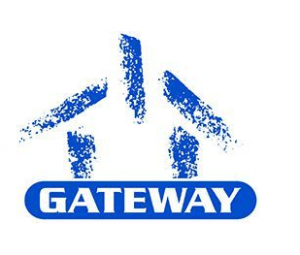 Gateway is a fantastic way to blend conventional school study with workplace learning and experience. It is a programme for career exploration that gives students the opportunity to gain experience and credibility that can be used when applying for tertiary education and employment.
Gateway is a fantastic way to blend conventional school study with workplace learning and experience. It is a programme for career exploration that gives students the opportunity to gain experience and credibility that can be used when applying for tertiary education and employment.
Students will:
- Learn practical industry skills and gain industry knowledge
- Gain credits that contribute to NCEA
- Have industry Unit Standards added to their record of learning where applicable
- Gain Unit Standards that can go towards a range of national qualifications
- Learn about a range of jobs available
- Develop first hand knowledge of what it is really like to work in an industry
- Become confident about entering the workforce through better knowledge of the requirements and expectations of workplaces
- Be able to make a more informed choice about tertiary study
- Work in the FlowerPot Pop Up Shop
- Volunteer
Internal and External Gateway – What is the difference?
There are different ways a student can participate in the Gateway Programme. The scheme at WGC is
designed to be flexible and to meet the needs of the student, school and employer as much as possible.
Pathway 1: Gateway Programme as a core subject – Internal Gateway
Students spend 1 day each week in a workplace/industry of their choice for approximately 8 hours/week for up to 10 weeks. A student’s timetable will dictate which day is most suitable as their workday. A student may ‘work’ outside of school hours if that is more suitable.
- Students choose Gateway as a core subject
- Submit an application to be on the Gateway programme
- Have parental support or approval to be on this programme
- All students complete Core Industry Unit Standards in their Gateway class to achieve a minimum 20 credits (does not include Flowerpot standards)
- All credits achieved counts towards NCEA
- All Y12 students must participate in The Flowerpot Pop Up Shop (They will gain 16 credits level 2 credits )
- Selected students may need to complete a Health and Safety course as part of their placement (worth 8 credits at level 3)
Pathway 2: Gateway Programme – NOT as a subject – External Gateway
Students work outside school hours either after school and/or during holiday periods. This would suit students who cannot or do not want to be out of school but want an insight into a specific career/industry area.
- See Ms Caseley to discuss suitability to be accepted on the External Gateway programme
- Submit an application to be on the Gateway programme
- Have parental support or approval to be on this programme
- Students complete Gateway Industry Unit Standards during study or own time aiming to achieve 20 credits
- Students meet with Ms Caseley regularly during their study time or lunchtime
- All credit achievement counts towards NCEA
- Students may have to complete a Health and Safety course (worth 8 credits at Level 3)
How to apply
- Contact Careers Department for further information
- Fill out an application form
Retail is an exciting career choice with loads of possibilities – from helping customers, product displays, marketing, running a store, to management at head office.
Warehouse Stationery Blue Shirts in Schools is a Gateway programme that gives students a chance to get valuable
work experience in retail and help make the move from school into a career.
Students will gain credits that can be used towards a nationally recognised New Zealand Certificate in Retail.
They’ll be supported along the way and learn important skills in line with industry standards including: effective communication; personal presentation; product knowledge and teamwork.
Retail is an exciting career choice with loads of possibilities – from helping customers, stock management, marketing, to running a store.
SEEDS (Students Entering Employment Developing Skills) is a Gateway Programme that gives students a chance to get valuable work experience in supermarket retail and help make the transition from school into a career.
Students will gain credits that can be used towards a nationally recognised New Zealand Certificate in Retail.
This could also lead to a career in retail or a pathway into a butchery or bakery apprenticeship. They’ll be supported all the way and learn important skills in line with industry standards including: customer service; personal presentation; food safety; product knowledge and teamwork
The Flower Pot
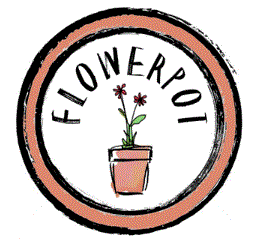 The creation of a pop-up shop, The Flower Pot was borne of the idea to provide as part of the Gateway programme, opportunities and real life experiences for students beyond what ‘the classroom’ or the Gateway placement could provide.
The creation of a pop-up shop, The Flower Pot was borne of the idea to provide as part of the Gateway programme, opportunities and real life experiences for students beyond what ‘the classroom’ or the Gateway placement could provide.
It will be hands-on learning with a high degree of responsibility and accountability but within a well-supported and managed framework. Students will gain valuable transferable skills and experience that will assist them in whatever career path they pursue.
How does it work?
There are different ways a student can participate in the FlowerPot External Gateway Programme. The scheme at WGC is designed to be flexible and to meet the needs of the student and the school as much as possible.
The FlowerPot External Gateway programme :
- Students identify an area they wish to specialize in or choose to be a FlowerPot assistant
- Students are assigned tasks and responsibilities after discussing their interests with us
- Students meet with Ms Caseley regularly at least one period each week during their study or during morning tea / lunchtime
- FlowerPot is specifically run for Mothers Day
- All credit achievement counts towards NCEA (National Certificate of Educational Achievement)
- Students will receive written reference at the end of their rotation
- Open to Y11 – Y13 students
Skills gained by Gateway Students by being actively involved in the FlowerPot Pop Up Shop.
- Communication
- Teamwork
- Problem resolution
- Planning & goal setting
- Time management
- Ability to meet deadlines
- Sales, marketing and promotion
- Resolving disputes
- Meeting management
- Brainstorming
- Responsibility
- Public Speaking
- Making connections
- Networking / Social Networking
- Pricing and finance
- Budgeting skills
- Cash handling
- Simple and efficient record keeping
- Administration and using office equipment
- Using IT effectively
- Personal Productivity
- Imagination –Inventiveness
- Prepare an array of floral products
- Condition and trim the flowers and foliage for keeping them fresh
- Package and display giftware
- Purchase stock
- Stock control and inventory
- Product and shop display
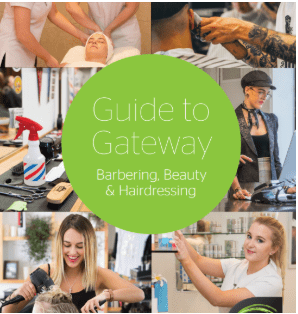
HITO Schools Gateway Programme
Careers in the beauty, barbering and hairdressing industries promise real opportunity, excitement and diversity. HITO’s Gateway programme is a great way for secondary school students to experience first-hand what it’s like to work in these industries.
How it works
Students enrolled in Gateway spend one day per week (for a minimum of 10 weeks) doing work experience in a barbershop, beauty therapy clinic or hair salon. This time can be spread throughout the school year or completed during term breaks.
Units
All units in the Gateway Programme are Level 2.

Hairdressing Gateway students learn a variety of practical skills within the salon environment, including communicating with customers and preparing salon equipment, which are supported by additional theory.
- 21940 Demonstrate knowledge of workplace requirements for employment in salon (5 credits)
- 28025 Demonstrate knowledge of the client journey in a salon (2 credits)
- 21938 Converse and interact with clients and operators in a salon environment (3 credits)
- 21937 Assist an operator in a salon environment (4 credits)
- 9953 Provide client service and care in a hairdressing or barbering salon (4 credits)
- 28026 Present a personal fashion image for work in a hairdressing salon environment (3 credits)
The Hairdressing Gateway course can lead onto an apprenticeship

Barbering Gateway students learn how to assist with a variety of basic barbering tasks and how to be a productive barbershop employee. Their practical learning is supported by theory.
- 21940 Demonstrate knowledge of workplace requirements for employment in salon (5 credits)
- 28025 Demonstrate knowledge of the client journey in a salon (2 credits)
- 21938 Converse and interact with clients and operators in a salon environment (3 credits)
- 21935 Maintain order and supplies in a hairdressing or barbering salon environment (5 credits)
- 19808 Select and maintain barbering tools and equipment (4 credits)
- 21936 Protect the client for hairdressing services in a salon environment (1 credit)
The Barbering Gateway course can lead onto an apprenticeship

Beauty therapy Gateway students learn a variety of basic beauty skills, including maintaining stock, assisting senior operators, and presenting themselves suitably in the workplace. Students spend time in the clinic learning practical skills which are supported by additional theory.
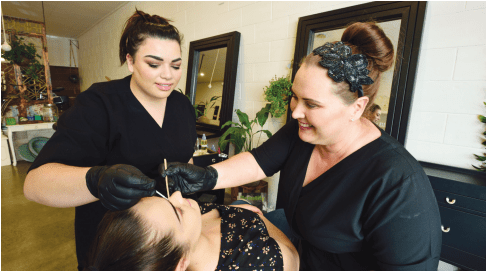 21940 Demonstrate knowledge of workplace requirements for employment in salon (5 credits)
21940 Demonstrate knowledge of workplace requirements for employment in salon (5 credits)
28025 Demonstrate knowledge of the client journey in a salon (2 credits)
27639 Apply knowledge of basic beauty concepts to maintain personal presentation for a commercial beauty salon (3 credits)
21938 Converse and interact with clients and operators in a salon environment (5 credits)
27637 Maintain order and supplies for a commercial beauty salon (4 credits)
27638 Provide client service and care and assist the operator to prepare for service in a beauty salon environment (3 credits)
The Beauty Therapy Gateway course can lead onto an apprenticeship
Further Information
This is the introductory brochure for the HITO Schools Gateway Programme.
https://www.hito.org.nz/wp-content/uploads/2019/11/12061-guide-to-gateway-update-june-2019-v2.pdf
Application / Enrollment process
If you are interested in any of these HITO Gateway programmes please contact Ms Caseley in the Careers Department to discuss your suitability.
You will have two options:
- Doing this as part of the mainstream Gateway class (You will be already taking or prepared to move to Gateway as a core subject)
- Alternatively do this programme externally. External Gateway means you will do this course in addition to your already existing subjects but your placement in a Salon will be done outside school hours or on the weekend.
Discuss the programme with your parents to ensure you have their support
You should have already approached or have been working at a salon who is willing to take you on or alternatively provide a list of Salons that you may wish to do your placement at.
If selected you will be required to fill out various Gateway forms which the Careers Department will give you if your application is successful and fill out the attached HITO Student enrolment form
https://www.hito.org.nz/wp-content/uploads/2019/11/schools-programme-enrolment-form-v2.pdf
New Zealand Institute of Sports – Gateway programmes
Have fun and learn new skills during your school holidays and gain extra NCEA Level 2 and 3 credits. NZIS offers Level 2 and Level 3 Gateway programmes over the school holidays. (Please note you must attend all 5 days)
Why choose the NZIS Gateway programme?
The NZIS Gateway programmes provide a perfect introduction to the recreation, health, fitness or sports industries and give you a taste of what tertiary study would be like.
NZIS Gateway programmes includes:
- Practical and classroom sessions
- Work placements
- Guest speakers
- Fitness fun
- Gain credits (approx 8 – 10 credits)
Sports, Fitness & Recreation (Level 2) Programme
- Demonstrate knowledge of time management Demonstrate, instruct and monitor static stretching (murray not sure why i have a gap below between bullet point but i can not correct it)
- Demonstrate, instruct and monitor correct use of cardiovascular exercise equipment
- Participate in a team or group which has an objective
- Communication with people from other cultures
- Demonstrate correct techniques when using basic gym equipment
- Demonstrate knowledge of basic skills at a beginners level for sport
- Describe benefits of participation in recreation in the local community
Sports, Coaching & Officiating (Level 3) Programme
Demonstrate knowledge of injury prevention and risk and injury management in sport and recreation
- Plan a beginner level coaching session for sport participants
- Conduct and review a beginner level coach session
- Apply sport rules and regulations while officiating in a competitive sports event
Contact the Careers Department if interested
Retail is an exciting career choice with loads of possibilities – from helping customers, product displays, marketing, running a store, to management at head office.
Warehouse Red Shirts in Schools is a gateway programme that gives students a chance to get valuable work experience in retail and help make the move from school into a career.
Students will gain credits that can be used towards a nationally recognised New Zealand Certificate in Retail.
They’ll be supported all the way and learn important skills in line with industry standards including: effective communication; personal presentation; product knowledge and teamwork.
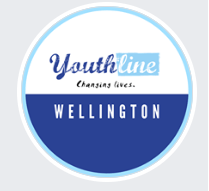 Youth Development Programme
Youth Development Programme
If you are a year 12 or 13 Gateway student who is interested in youth work, social work or other careers in the social services sector, then Youthline Wellington has a programme for you.
Youthline Wellington has been running a Youth Development Programme (YDP) since 2011. The purpose of YDP is to provide an opportunity for year 13 Gateway students in the Wellington region to gain valuable skills and knowledge in the social services field.
The programme consists of weekly 2 hour sessions over the school terms 2 and 3, in Wellington Central, and Porirua. Students who participate and complete all course work and maintain an attendance of over 80% will gain a New Zealand Level 3 Certificate in Youth Work, and 44 NCEA Level 3 Credits.
Here are some quotes from past students:
“I enjoy the interaction between the group and facilitators and how they’re interested in how you are and what you’ve been doing and genuinely interested in your opinion or comments towards the topic at hand. I’m getting friends out of this course and people skills learning from the other people’s experiences and how even through we’re from different backgrounds we’re still important.”
“I enjoy learning about how we handle ourselves in different ways throughout different challenges in life. I have learnt about the Treaty of Waitangi in a much better way compared to learning it at school.”
If you are interested in this programme please contact the Careers Department

Gap Year
Tau āputa
A gap year is simply a year, or even less, taken out from formal education.
This year may occur during the transition from secondary school to tertiary education, or even after completing all formal education but before entering the workforce. Regardless of when it occurs, there are many options for gap years that include travel, work or volunteering.
For an excellent overview of taking a gap year, what type of things you can do, including advantages and disadvantages of taking time away from study visit https://www.careermatters.co.nz/post/2018/07/24/should-i-take-gap-year-after-high-school
There are several organisations that can assist with overseas placements. Some of these are:
Student Exchange AU/NZ
Kaupapa whakawhiti tauira
There is a variety of organisations that provide student exchanges to a multitude of destinations world wide. These are generally for a full year or a semester with varying departure dates. This is a brilliant opportunity to learn a new culture and perhaps a new language.
Whānau as Career Educators
Whānau hei kaiako mahi
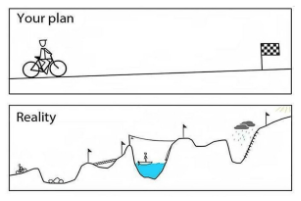
Parents and whānau are often the first and preferred choice for information, advice and guidance for young people when making career decisions. Parents and whānau ,working alongside school Career Advisors, have a positive impact on student learning and transition outcomes.
Often parents and whanau hear the word ‘career’ and think back to when they were younger it was the norm to choose a career path for life. Those days are gone.
Many parents and whānau report they feel overwhelmed about how to help their teenager in making informed career decisions. They often believe they might give them incorrect advice, resulting in the teenager making the wrong decision. In today’s fast changing world there is no such thing as a wrong choice because a career decision is not a single event. Career paths are no longer linear with a fixed destination, rather career paths are now a journey, with multiple roads and numerous destinations, guided by available support, and ever-growing opportunities. There will be bumps in the road along the way however, the key is to support your teen in overcoming these bumps. We have a forgiving education system that enables students to recover from false starts so be sure that teens understand the power of resilience and the ability to bounce back is a skill that will serve them well in the 21st century working world.
https://www.cate.co.nz/parent-resources/%5B/vc_column_text%5D%5Bvc_tta_tabs color="black" active_section="0"]
- Notice and name your Child’s Skills
Is your teenager really good with people? Mention that they have strong social skills. People skills and interpersonal skills are something that employers are constantly crying out for. Are they avid readers? Mention how people who read a lot have strong critical thinking skills. Try and get in the habit of noticing and naming what they have natural skills and abilities in. That is who they are and that is what they need to know about themselves. “The new question is not what do you want to be but rather how do you want to be? (Savicks, 2019) - Grow your own Network of Contacts
Grow your own network of contacts and then introduce your teens to interesting people. This will be useful both now as they are deciding what to do after secondary school and later as they are looking for work in their chosen field.
- Listen Quietly
Listen quietly, patiently and uncritically. Just listen and restrain yourself from offering opinions/advice/solutions. As you listen, encourage them to tell you: What do they think are their strengths? What things do they find challenging? Who would they most like to be like? - Find Neutral Sources of Information
The ability to find and locate information is another important career development skill. Remember that you as a parent/caregiver are not neutral. If they want to pursue a career that you suspect will be low paid or if you think their chances of finding work in that field will be difficult, instead of telling them they are wrong show them neutral sources of information on income levels and labour market statistics. Three websites with great labour market information relevant to New Zealand are:https://www.careers.govt.nz/jobs-database/ - Be open to all Possible Opportunities’
If you keep an open mind to what’s possible, they will begin to believe in different possibilities for their future. Remember your children are not static and they may have many careers throughout their working life
- Critically Examine your Definition of Success
Research shows that once you can provide financially for yourself and your family, additional salary and benefits don’t reliably contribute to worker satisfaction. Much more important are things like whether a job allows you to be in control of your own time, whether you work alongside others whom you respect and whether you feel your job is meaningful.
- Encourage Curiosity
Encourage them to talk to people, to try out new things. Lead by example. Encourage them to do some voluntary work – there is a great website called: https://www.volunteeringnz.org.nz/want-to-volunteer/
This lists both long and short term volunteering opportunities. Encourage them to get a part-time job. Working part-time will grow their employability and working in customer service will show potential employers that they have work-ready skills that employers value. - Take Action
Action is the antidote to not knowing what to do with your life. Very few people have this searing moment of clarity where they just instantly know what they are supposed to do with their lives; instead people discover what they like and what they are interested in but trying a lot of different things (Symington, 2014). So keep encouraging the young people to try new things. - Value Emotional Intelligence
Remember that you cannot choose well if you only base your decisions on rational thought. Like it or not, we are emotional. Human beings invariably include emotions in their decision making processes. By all means, get the facts, know the numbers, know the labour market, know the salary expectations, but don’t discount how you feel about it. - Embrace Uncertainty
As a society, we seem to be nervous about uncertainty. A lot of us like to know what the plan is, and like to feel secure that we know what’s coming our way, and that is not always helpful when it comes to career development. A really important career skill is to learn about how to capitalise on chance events and how to realise that the chance of something good happening is just as likely, if not more likely, than something not so good. Have conversations with your teenagers about things in your life that were lucky, things in your life that seemed to be chance events that led you to a great opportunity, times in your life when you were presented with an unexpected opportunity and ran with it – help them see that all plans need to be flexible. An inflexible plan can easily lead to disappointment whereas a flexible plan leaves room for unexpected positives.(Lila Pulsford, 2019)
Tips for Parents:
Model what you know and want. Your teen is watching and listening. Take the time to connect, put your phone away, and make sure the time you have with your teen is uninterrupted. Ask for your teen’s input, what help do they want from you, when would be a good time to talk? Ask for feedback, if you give them some information or advice, ask if that is helpful and of benefit to them?
Connect with the school. This includes classroom teachers, their Dean the Career Advisors and Wānanga teachers. Show your teen that you support their goals and understand what they need to do academically to achieve these.
Be informed. Take some time to become familiar with the website, careers calendar and the career management programme WGC is using. Organise visits to training providers, open days and information evenings.
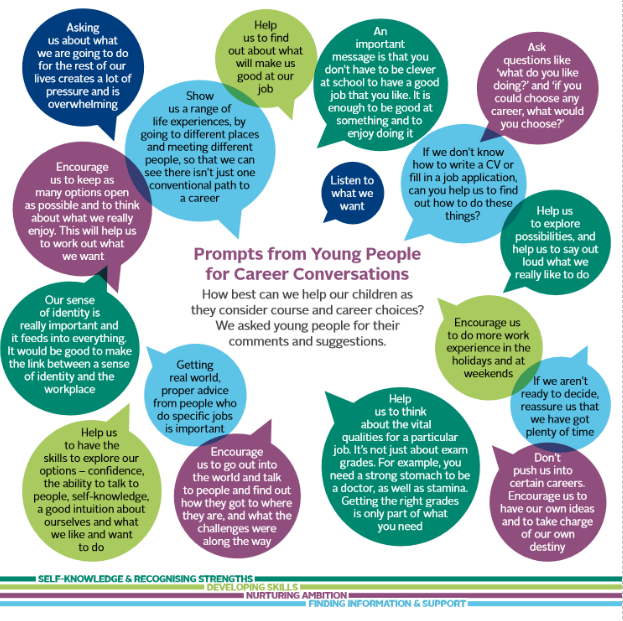
(The National Parent Forum of Scotland)


